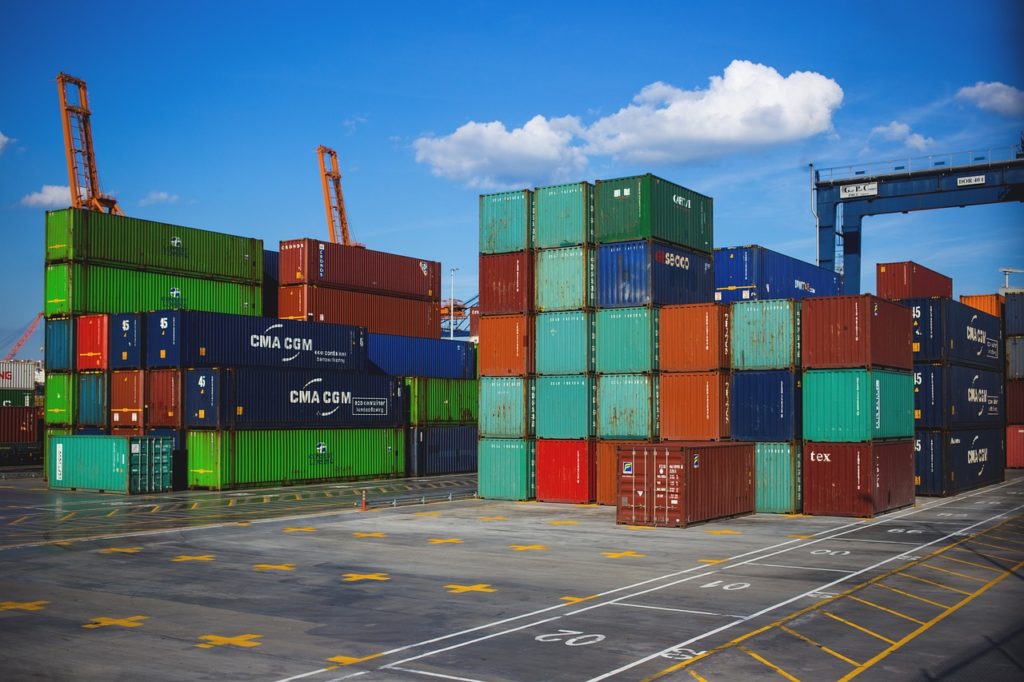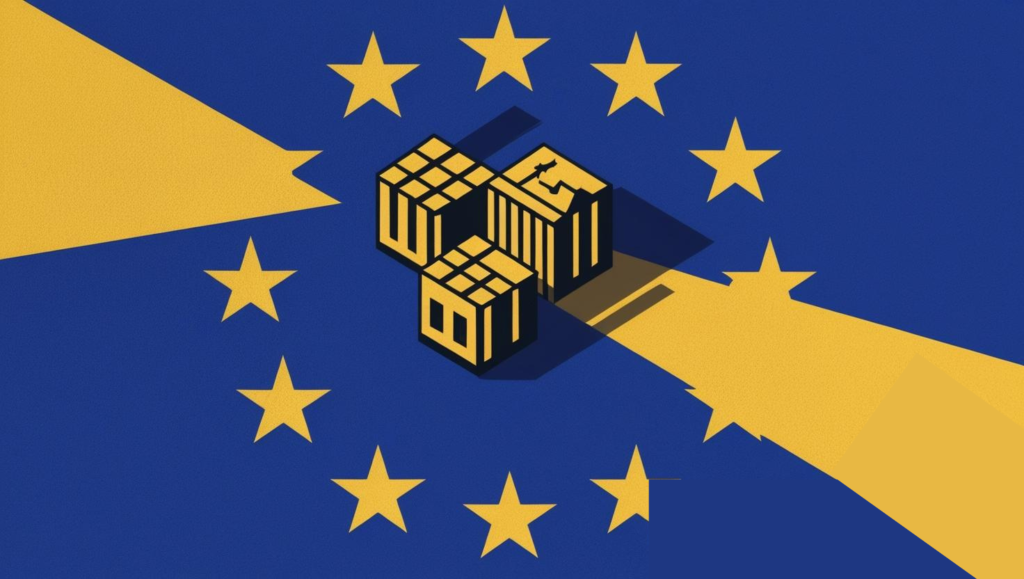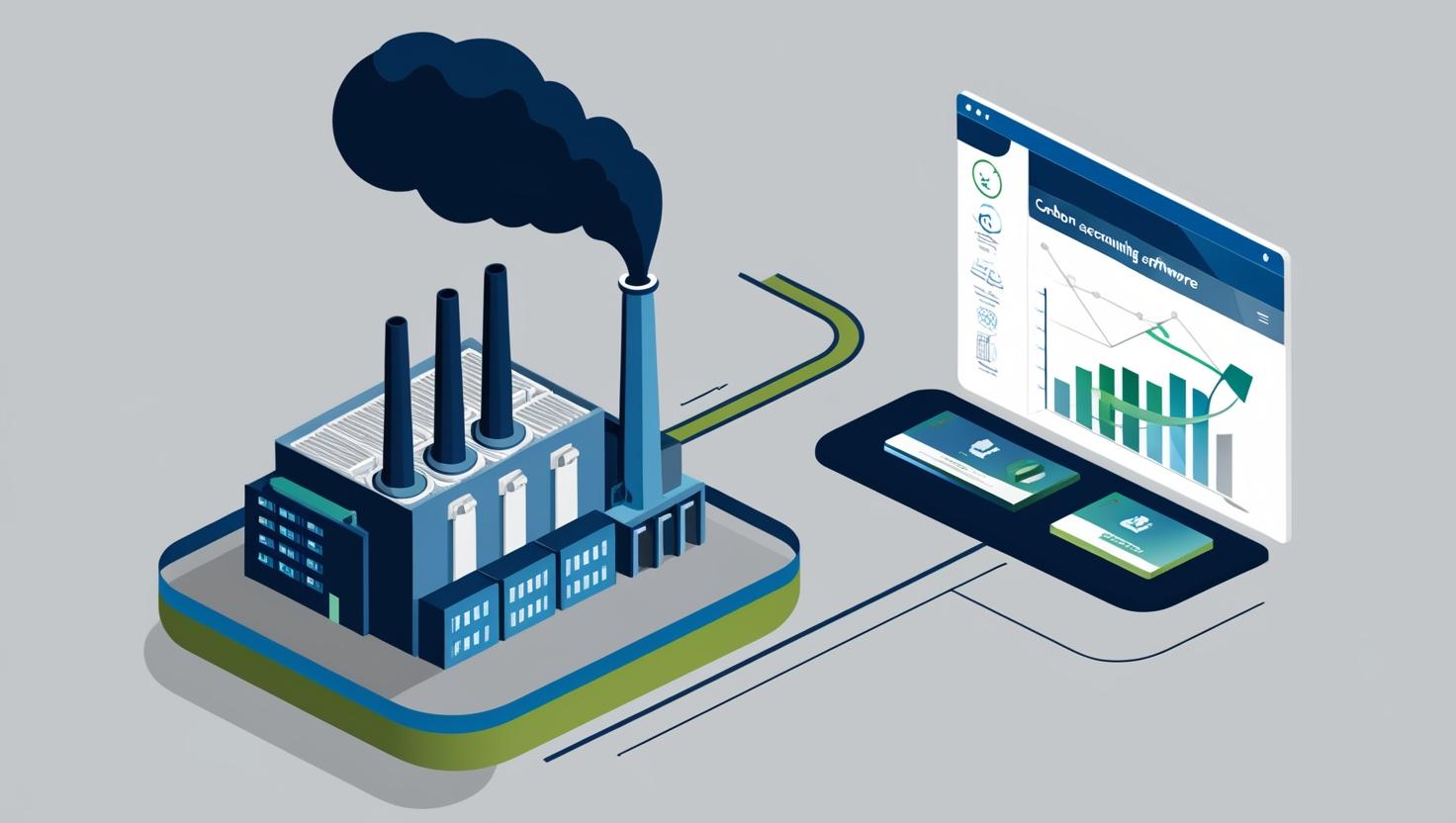The EU’s Omnibus package under the Carbon Border Adjustment Mechanism (CBAM) is set to reshape global trade dynamics. With this new initiative, major EU importers are expected to favor suppliers that employ cleaner production methods, driving shifts in trade patterns as businesses seek to avoid premium costs associated with higher emissions. This change in CBAM for EU importers could significantly impact an import market valued at over 6.53 trillion euros.
At the same time, revised CBAM declarant reporting rules offer transitional relief for approximately 182,000 SMEs while covering over 99% of total emissions. These modifications aim to streamline reporting processes and boost operational efficiency for EU declarants, ensuring smoother compliance for global suppliers and the majority of EU importers.
The EU importers’ complex relationship with CBAM
EU importers act as a bridge between exporters and the National Competent Authority (NCA), when it comes to CBAM reporting, particularly declarant reporting. However, this relationship has now come under the shadow of unwilling obligation. It has cast multiple direct and indirect impacts on the importers. There are two primary categories of impacts that CBAM casts on importers: administrative impact and business impact.
Administrative impacts of CBAM on importers
Under the administrative impacts of CBAM, importers will witness economic, operational and compliance commercial challenges. For instance, importers choosing not to trade with suppliers with CBAM reporting discrepancies will also incur their revenue loss as they will not be able to release more products for free circulation in the European Union. Furthermore, that also means data management costs on the administration.
- Penalties on importers: EU importers are responsible for maintaining cross-verification of emissions data and submitting the data on time. For instance, an importer who is submitting inaccurate emissions data could invite financial penalties from the EU. This could happen due to administrative failure by the importers because of lack of coordination between declarants and exporters, besides specific tasks that must be carried out under the CBAM.
- Data management system costs: CBAM compliance and CBAM for EU importers involve the establishment of data collection and management systems. It also means additional costs and expenditures for declarants besides investment in resources. The data collection system requires expertise and a skilled workforce that understands CBAM completely. Hence, importers need to depend on the best workforce and efficient techniques, which means monetary costs.
- Competitive selection of suppliers: A major impact of CBAM implementation is the change in the selection process of suppliers by declarants. Increasingly, supplier selection will be guided by their ability to submit declarations of their embedded emissions. Exporters’ failure to submit the emissions data on time to the importer could mean changes in trade relations. For example, importers’ business could either go up or down depending on the frequency and accuracy of emissions data shared by suppliers. Importers will ideally select the suppliers that give CBAM data with ease and do not hamper importers’ business depending on the regular bulk of goods imported by them.
- Sourcing competitive suppliers: Businesses may need to find suppliers with lower carbon footprints or look for EU-based suppliers. Importers will evaluate their supply chains and identify suppliers that have lower carbon footprints to ensure cost mitigation while buying and surrendering CBAM certificates. EU importers dealing with suppliers in areas that have less stringent environmental regulations could witness higher costs due to CBAM. Notably, the price of these certificates is based on the price of EU ETS allowances.
Importers’ business and CBAM impact
The European Union is one of the key players in global trade and business, and it generates trillions of euros for its economy. The total imports by the EU between 2022 and 2023 stood at €6.53 trillion, as per Statista report. Out of these, €4 trillion of trade took place between EU member states, while €3.5 trillion worth of imports of goods were from countries outside the EU.
A similar data by the EU-affiliated Eurosat suggests that the EU continues to be one of the significant drivers of economic growth in the world. For instance, the EU accounted for 14.8% of global imports.
The CBAM could impact EU importers’ business operations and economic prospects greatly. For instance, importers will have to pay for purchasing and surrendering CBAM certificates for the free circulation of their CBAM product import into the EU market starting in 2027. Moreover, the UK Steel industry’s estimates suggest that the EU CBAM could cost steel importers 37.50 euros a tonne.

CBAM’s multi-level impact on importers’ revenue and product costing
- Increased costs: Importers will bear the direct cost of the carbon tax for the amount of embedded emissions in their products. This will lead to higher prices for imported products under CBAM. Notably, the price of these certificates is linked to the EU Emissions Trading System (ETS), potentially leading to higher costs for carbon-intensive products.
- Reduced demand: As the CBAM is a new compliance, importers will most probably get to handle excess amount of emissions data from the suppliers. This could mean more carbon pricing, leading to reduced demands for the consequential expensive products in the EU market. Consequently, this could impact even the profit margins for the importers dealing in CBAM products.
Steps to minimise CBAM pressure on EU importers
In order to minimise and eventually eliminate the severe CBAM impacts on importers, businesses need to focus on three aspects:
- Digital software for CBAM reporting: Reducing CBAM’s impact on importers is directly linked to developing and establishing automated digital software for CBAM reporting. Depending on manual efforts and Excel Sheets, can only mean recurring data inaccuracy issues for importers.
- Streamlined process: The CBAM pressure on importers also escalates due to the lack of early adoption of the CBAM reporting tool and the absence of a streamlined reporting process. This creates chaos and confusion, which continue to impact importers’ businesses.
- Ease of data management: Importers must install CBAM reporting systems that facilitate ease of data management. The idea is to make the data management process simpler, easier and more effective with the help of the right technology and accurate CBAM reporting tool.
CBAM for EU importers tool for error-free reporting
CBAM reporting presents significant challenges for importers, as they must coordinate with third-country suppliers for accurate data collection, making supplier outreach complex. The Sustainability Cloud offers a comprehensive, automated CBAM compliance solution designed to streamline the process. This end-to-end software minimises CBAM’s administrative burden, facilitates supply chain decarbonisation, enables precise carbon tax forecasting, and ensures seamless generation of quarterly CBAM XML reports. By leveraging this solution, importers can enhance efficiency, maintain compliance, and optimise their sustainability strategies with minimal operational disruption.




